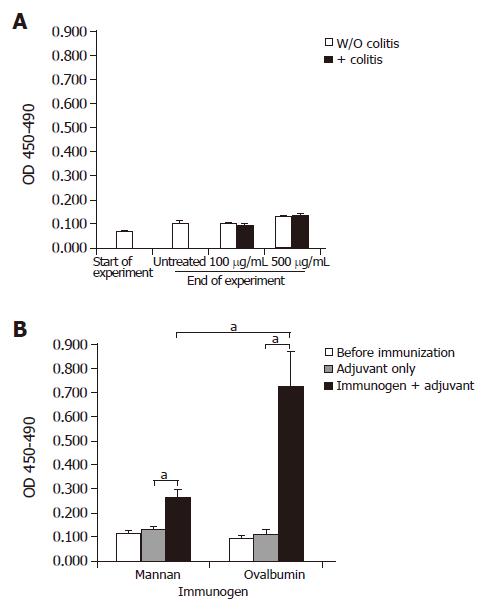Copyright
©2005 Baishideng Publishing Group Inc.
World J Gastroenterol. Nov 28, 2005; 11(44): 6988-6994
Published online Nov 28, 2005. doi: 10.3748/wjg.v11.i44.6988
Published online Nov 28, 2005. doi: 10.3748/wjg.v11.i44.6988
Figure 3 OD at 450 nm representing relative levels of polyclonal anti-Saccharomyces cerevisiae antibody (ASCA) (A) in control Balb/c mice (empty columns) or mice with DSS-induced experimental colitis (shaded columns).
Basal ASCA titers were determined at the start of the experiment. During the experiment, mice received water containing 100 μg/mL or 500 μg/mL yeast solution ad libitum. (B) Balb/c mice were immunized with water or 50μg yeast mannan or ovalbumin mixed 1:1 (v:v) in GERBU adjuvant. After 2 wk, mice received a booster injection and ASCA or anti ovalbumin antibodies were determined 7 d later. aP<0.05.
-
Citation: Müller S, Styner M, Seibold-Schmid B, Flogerzi B, Mähler M, Konrad A, Seibold F. Anti-
Saccharomyces cerevisiae antibody titers are stable over time in Crohn’s patients and are not inducible in murine models of colitis. World J Gastroenterol 2005; 11(44): 6988-6994 - URL: https://www.wjgnet.com/1007-9327/full/v11/i44/6988.htm
- DOI: https://dx.doi.org/10.3748/wjg.v11.i44.6988









